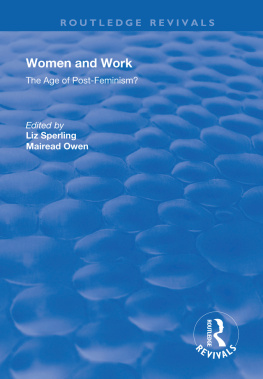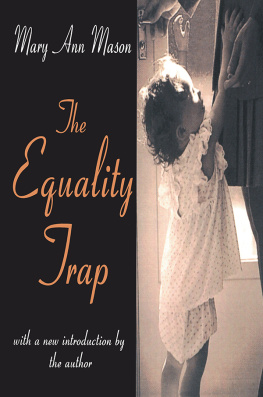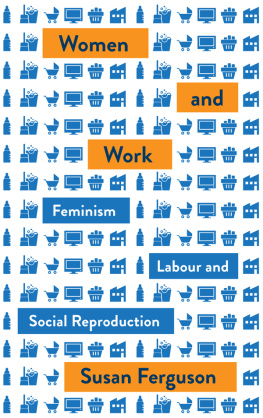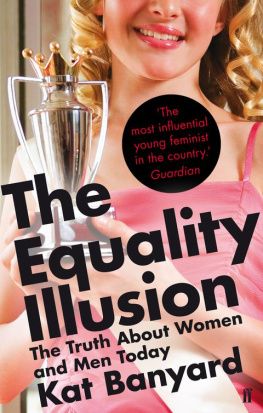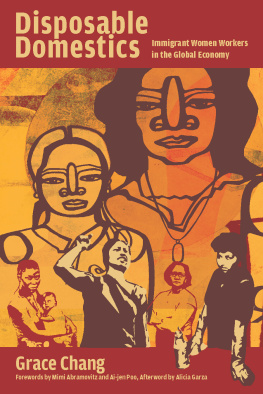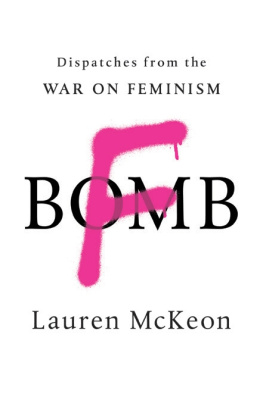First published 2000 by Ashgate Publishing
Reissued 2018 by Routledge
2 Park Square, Milton Park, Abingdon, Oxon OX14 4RN
711 Third Avenue, New York, NY 10017, USA
Routledge is an imprint of the Taylor & Francis Group, an informa business
Copyright Liz Sperling and Mairead Owen 2000
All rights reserved. No part of this book may be reprinted or reproduced or utilised in any form or by any electronic, mechanical, or other means, now known or hereafter invented, including photocopying and recording, or in any information storage or retrieval system, without permission in writing from the publishers.
Notice:
Product or corporate names may be trademarks or registered trademarks, and are used only for identification and explanation without intent to infringe.
Publisher's Note
The publisher has gone to great lengths to ensure the quality of this reprint but points out that some imperfections in the original copies may be apparent.
Disclaimer
The publisher has made every effort to trace copyright holders and welcomes correspondence from those they have been unable to contact.
A Library of Congress record exists under LC control number: 00132581
ISBN 13: 978-1-138-73445-6 (hbk)
ISBN 13: 978-1-315-18724-2 (ebk)
Jean Burrell and Hilary Roliin had been colleagues in the School of Languages at Oxford Brookes University for several years before they discovered they had both studied Spanish at the same small London University college. Jean now lectures in French language and French women's writing and Hilary is a lecturer in the expanding Spanish department. They have recently collaborated on several conference papers and articles on their research project on women's employment, particularly in the hospitality industry, in four European countries. Hilary has also presented papers and articles focusing on the Spanish situation. With Jean Monnet Fund support, they and their colleagues have developed an undergraduate course looking at women's employment in Europe.
Joanne Cook is a researcher on an EU(TSER) funded project on labour market participation and social exclusion. She is also currently completing her PhD, which examines the restructuring of social rights, using case studies of UK flexible employment and welfare benefits policies. Her recent work includes the re-structuring of citizenship, flexible employment and welfare benefits policies in the UK and gendered political economy.
Gillian A. Dunne is a Senior Research Fellow at the LSE Gender Institute. Her research at Cambridge University and at LSE explores the relationship between gender and sexuality. In comparative studies which focus on 'non-heterosexual' experience of work and family life, she is interested in illuminating the role of institutional heterosexuality for reproducing gender inequality. She has recently completed a study on gay fatherhood, and is currently working on transitions to adulthood from the perspectives of young lesbian and gay people. Her books include, Lesbian Lifestyles: Women's Work and the Politics of Sexuality and Living 'Difference'?: Lesbian Experience of Work and Family-life.
Catherine Fletcher is based in the Faculty of Languages and European Studies at the University of the West of England. Her current research is on equal opportunities in training, focusing specifically on the insurance industry.
Andrea Lee is a Senior Lecturer in Human Resource Management in the Department of Management at the University of Central Lancashire. Her teaching and research interests cover equality issues, gender and work. The material for this chapter was drawn from her MPhil research which examined the implementation of an equal opportunity policy within a local authority.
Mairead Owen is a Senior Lecturer in Women's Studies at Liverpool John Moores University. Her first degree was in Sociology and her PhD at Liverpool University was jointly supervised by the Department of English and that of Communication Studies. This 'eclectic' background continues in her teaching and research, with work on women and equal opportunities, women and the media, feminist pedagogy and gender and ageing. Her publications include chapters and articles on teaching and learning in Women's Studies and on women's reading of popular fiction, while her present research focuses on issues around women and the body, and the social construction of older age.
Nicola Piper is a Research Fellow at the Nordic Institute of Asian Studies in Copenhagen. She obtained her MA in Japanese Studies and PhD in Sociological Studies, both from the University of Sheffield (UK). She taught for three years at the School of East Asian Studies at Sheffield. Her research interests are in various aspects of international labour migration, and she has published a book on immigrants' citizenship in Britain and Germany, as well as a number of articles on female labour migrants in Japan. Her current research project deals with gender, war crimes and the issue of compensation in Japan and Germany. She is also co-editor of a forthcoming book on gender, work and globalisation.
Liz Sperling is Senior Lecturer in Politics at Liverpool John Moores University. She is currently writing a book on women, political philosophy and politics. Her past work includes research into the Europeanisation of local government, women's policy networks and women's political representation on Quangos.
Lesley Twomey has been Head of Spanish at the University of Northumbria at Newcastle since 1997. Her PhD, completed in 1995, is on "The Immaculate Conception in Fifteenth Century Castilian and Catalan Poetry: A Comparative Thematic Study'. She has continued to research in the field of fifteenth century literature. In addition, Lesley maintains research on working women in Spain and has presented papers and articles in this area. She has edited a book on Faith and Fanaticism: Religious Fervour in Early Modern Spain, and is currently editing a comparative study of women's lives, entitled Women Face the New Millenium.
Linda Walsh and Liz James are colleagues at Liverpool John Moores University. Linda mainly teaches microeconomics, financial and industrial economics, and economic methods. Her research interests are in the area of Eastern Europe and accession to the European Union. She has recently contributed two shared chapters to M. Mannin (ed.) (1999) Pushing Back the Boundaries. Liz has a PhD in Interdisciplinary Women's Studies from the University of Warwick. Her research interests include working-class women's writing.
LIZ SPERLING
This book considers the position of women and work in the modern economy. From the legislative effects on 'freeing' women to work and initiatives to attain status as equal s within the workforce, to the choices that women make in relation to paid employment, it is possible to measure the extent to which we live in a post-feminist era. The concept of 'post-feminism' is not one that I would choose to posit. It is, however, an idea that has been bandied about as a result of the measurable increase of women's visibility in the public sphere. The argument that opportunities exist for women to grab, and the consequent focus on the individual for failure to progress in whatever field, is attractive to those attempting solidarity or sympathy with 'disadvantaged' groups such as women electors, employees and consumers, whilst simultaneously clinging to power. The fact that more opportunities for women do exist in paid employment, which empowers women in other activities (Blumberg, 1995:5), is undeniable. How far such opportunities have created an epoch of equalitarianism is open to question.

